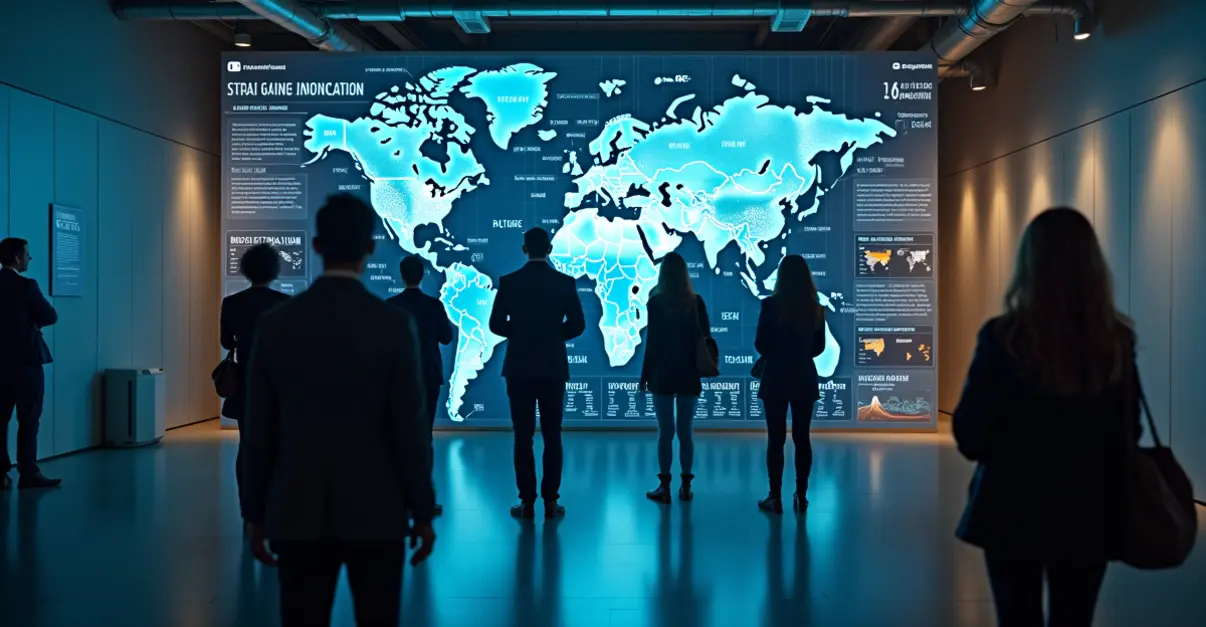The Global Race for Innovation Talent
In 2025, cities worldwide are engaged in an unprecedented competition to attract tech talent and startup companies through innovative grant programs and incentives. From established hubs like Silicon Valley to emerging centers in Latin America and smaller U.S. cities, municipalities are deploying strategic funding to secure their positions in the global innovation economy.
Federal Funding Fuels Regional Tech Hubs
The U.S. Department of Commerce's Economic Development Administration recently announced approximately $210 million in implementation grants to six Tech Hub Designees, following a July 2024 announcement of $504 million for 12 Tech Hubs. This brings the total federal investment to over $700 million for 18 centers of excellence across the country. 'We're seeing cities recognize that winning the talent competition requires joint public-private sector efforts,' says Dr. Maria Rodriguez, an economic development expert at BCG. 'Countries leading in attracting specific tech talent are 17 times more likely to lead in that technology overall.'
Emerging Hubs Offer Competitive Alternatives
While traditional powerhouses like the San Francisco Bay Area continue to dominate with over $90 billion in VC funding in 2024, smaller cities are making significant strides. According to a comprehensive survey of 3,024 entrepreneurs, Texas cities dominated the rankings of startup-friendly locations for 2025, with Dallas, Austin, and Houston claiming the top three spots. 'These smaller cities demonstrate that targeted support initiatives can effectively compete with larger metropolitan areas,' notes startup advisor Michael Chen.
International Competition Intensifies
Globally, the competition extends beyond U.S. borders. BCG's Top Talent Tracker Q2 2025 reveals that while overall global mobility of highly skilled professionals slowed to 2.6 million cross-border moves in 2024, specialized tech talent shows different trends. STEM professionals moved at a 2% rate (727,000 people) with 6% growth, while AI experts were the most mobile group at 2.4% (33,000 people). 'The US remains the top destination, while European countries stagnate and Gulf nations like UAE and Saudi Arabia are gaining popularity rapidly,' according to BCG researchers.
Local Incentives Drive Relocation
Multiple U.S. cities are offering substantial financial incentives to attract entrepreneurs and reverse brain drain. Programs like Tulsa's Tulsa Remote program provide $10,000 cash grants plus co-working space and networking opportunities. Topeka, Kansas offers up to $15,000 for relocation through Choose Topeka, while Rochester, New York provides up to $50,000 grants via ROC the Block for businesses in underserved neighborhoods. 'These programs aim to foster economic growth by combining financial incentives with community support and mentorship,' explains urban development specialist Sarah Johnson.
Latin America's Rising Stars
Latin America is emerging as a significant player in the global tech talent landscape. São Paulo, Brazil leads as Latin America's largest tech hub with over 1.5 million IT professionals and 10-15% annual growth, supported by $6.8 billion in venture capital. Mexico City has over 700,000 IT professionals and attracted major tech companies like Google and Amazon. 'These hubs provide skilled talent, cost-effective solutions, and cultural alignment for companies expanding their tech teams,' says international business consultant Carlos Mendez.
The Future of Talent Competition
As the competition for tech talent intensifies, cities are recognizing that success requires more than just financial incentives. According to research on startup ecosystems, building cultural infrastructure is as important as financial and technical support in developing thriving entrepreneurial environments. 'By incorporating both cultural and material perspectives, policymakers can better design incentives and regulations to foster economic growth and innovation,' notes ecosystem researcher Dr. Thomas Hannigan.
The global battle for tech talent shows no signs of slowing, with cities worldwide continuing to innovate their approaches to attract and retain the innovators who will drive tomorrow's economy.

 Nederlands
Nederlands
 English
English
 Deutsch
Deutsch
 Français
Français
 Español
Español
 Português
Português










